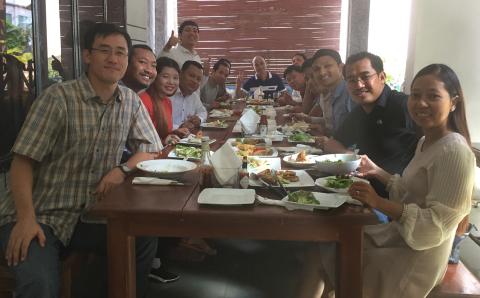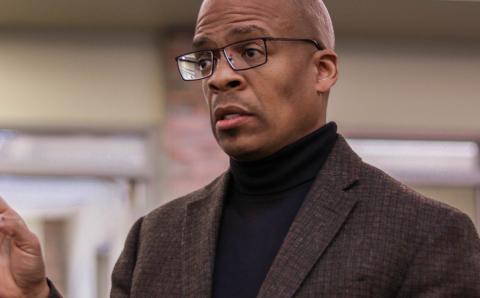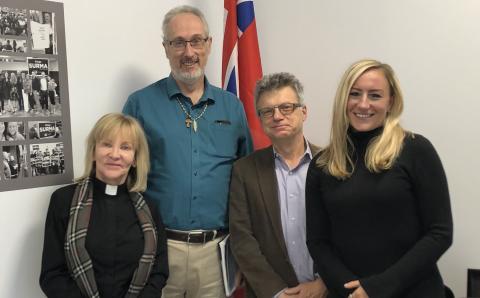Earlier this year we were standing in the eating area of prison block Number 4 at Constitution Hill in Johannesburg, South Africa. The guide was describing for us how the prisoners were treated: the food rationing, the deliberately humiliating body searches conducted in front of the entire cell block, the solitary confinement cells. The conditions she described recalled those of a concentration camp, not a federal prison. The crimes these men had committed? Some had been working in the white part of the city and had not been able to produce their passbook when asked. Others were on the streets after a curfew that mandating that Blacks and Coloreds must be within their township boundaries by nightfall. Still others had attended a political meeting protesting apartheid. All of them were Black.
It was at that moment that apartheid stopped being only history to me—a sad chapter in the story of South Africa. I realized just how deeply evil this institutionalized, legal separation of the races was. It's that evil that the churches of South Africa cried out against in crafting the Belhar Confession.
They did not cry out in anger or ask for retaliation; rather, the Dutch Reformed Mission Church (DRMC) cried out in faith and asked for repentance. Formally adopted in 1986 by the DRMC while apartheid was still law in South Africa, this confession reminded the world of the gospel of Jesus Christ: the gospel of unity, reconciliation, and justice.
It may seem that a confession written in South Africa is a long way from being a relevant confession for our churches in the U.S. and Canada, but the gospel of unity, reconciliation, and justice needs to be proclaimed and heard in our contexts as well. That God desires the church to "give ourselves willingly and joyfully to be of benefit and blessing to one another," to be a peacemaker, and to witness against any form of injustice is a call to obedience for all Christians.
That leaves us, then, as the Belhar Confession puts it, with both a gift and an obligation. The gift is the gift of Christ’s peace that unites us as one body, as one kingdom, as one family. But what about that obligation? The Belhar also challenges us with questions we need to be asking:
- How do we—the church of Jesus Christ—still make distinctions between and among us?
- What differences need to be addressed and confronted instead of silently allowed to exist?
- Do we celebrate diversity as a church—do we allow it to enrich us?
- How does the way we live together show the world that we were created in Christ, through him, and for him?
- How does our unity as the body of Christ mirror the unity of the triune God? How does our community honor the community that is our triune God?
These words—this confession, this call to unity, reconciliation, and justice—demand more in response from us than nodding our heads in agreement. They call us instead to live out our life together as church. I hope that this confession, as a true expression of the gospel, will, as John Calvin urged, "change our hearts, pervade our manners, and transform us into new creatures." (Golden Booklet of the True Christian Life)
"We believe," the Belhar states, "that God has entrusted the church with the message of reconciliation in and through Jesus Christ, that the church is called to be the salt of the earth and the light of the world."
Thanks be to God that we have been entrusted with such a message.
Try discussing the author’s questions in your small group.
About the Author
Thea Leunk is a pastor at Eastern Avenue Christian Reformed Church in Grand Rapids, Mich.







